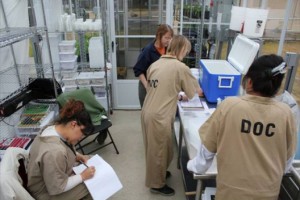By wogwpa1358 on March 2, 2012 / Family, Health
Tags:
Carolyn Parrs,
eco mom,
environment,
Fast Food Nation,
junk food,
kids eating junk food,
McDonalds,
Organic food,
super-size me,
women in green,
women of green

From OrganicConsumers.org
The U.S. industrial food and farming system, dominated by fast food restaurants and processed, chemical-laden food, has precipitated a public health crisis. Although nutritionists recommend that consumers avoid eating unhealthy junk foods, every day 75 million Americans “supersize” themselves and damage their health by eating at McDonald’s or other fast food restaurants. Forty percent of American meals are now purchased and consumed outside the home, typically consisting of high-calorie, low-nutrition items such as soft drinks, French fries, and low-grade meat, laced with fat, cheap sweeteners, pesticide residues, chemical additives, and salt. We have become a Fast Food Nation of bulging waistlines and high blood pressure.
Recent studies link pesticide residues and chemical additives like MSG in processed foods and restaurant fare to hormone disruption and obesity. No wonder 60% percent of Americans are either overweight or obese. One in every three children born since the year 2000 will develop diabetes in their lifetime. Diet-related obesity, diabetes, and heart disease are now the nation’s number one public health problem, generating an estimated $150 billion in health care costs every year. Millions of youth and adults have literally become addicted to the chemically enhanced junk food served in fast food restaurants, school lunchrooms, and institutional cafeterias. In 1972, U.S. consumers spent three billion dollars a year on fast food – today we spend more than $110 billion.
The junk food industry, now under attack by public health advocates and parents, finds itself in a similar position to where the tobacco industry was in the 1990s. After decades of lies and industry propaganda, the truth is finally coming out: junk food kills.
Indeed, despite individual efforts by some states to tax soda pop, require healthier school lunches, or mandate calorie information in chain restaurants, obesity rates in the United States are growing. It is time for the federal government to stop subsiding, with billions of dollars of public tax money, the factory-farmed crops and animal products (corn, soybeans, cotton, dairy, and meat) that create the artificially low prices that prop up the nation’s junk food industry.
Continue reading... →








